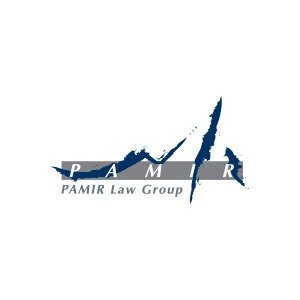Best Private Equity Lawyers in Taipei
Share your needs with us, get contacted by law firms.
Free. Takes 2 min.
List of the best lawyers in Taipei, Taiwan
About Private Equity Law in Taipei, Taiwan
Private equity in Taipei, Taiwan, refers to investment funds, usually organized as limited partnerships, that invest directly in private companies or engage in buyouts of public companies. The goal is to achieve returns for investors through buyouts, recapitalizations, growth capital investments, or venture capital initiatives. The private equity market in Taipei is steadily growing, fueled by the city's dynamic business environment and its strategic role as a financial hub in Asia. Legal frameworks governing private equity transactions are meticulous, reflecting both international standards and local commercial practices.
Why You May Need a Lawyer
Engaging in private equity transactions can be complex and involves significant financial stakes. Common situations where legal help is essential include:
- Drafting and negotiating investment agreements
- Conducting due diligence on target companies
- Structuring transactions for tax efficiency
- Ensuring compliance with Taiwan’s financial regulations
- Handling cross-border investments and foreign ownership restrictions
- Mediating between investors, fund managers, and portfolio companies
- Resolving disputes arising from deal terms or post-transaction integration
- Advising on exits such as IPOs or secondary sales
A specialized lawyer helps protect your interests, ensures regulatory compliance, and navigates the complexities of Taiwan's legal environment for private equity deals.
Local Laws Overview
Private equity activities in Taipei are governed by a mix of commercial, securities, company, and foreign investment laws. Key legal aspects include:
- Company Law: Determines how businesses are formed, governed, and dissolved. It covers shareholder rights, board structure, and disclosure requirements.
- Securities and Exchange Act: Governs public offerings, insider trading, and the regulation of securities transactions. Private equity investments in public companies are particularly impacted.
- Business Mergers and Acquisitions Act: Sets out the processes and notifications required for mergers, acquisitions, and share transfers.
- Foreign Investment Approval: The Investment Commission must approve foreign-related private equity investments under the Statute for Investment by Foreign Nationals and related orders.
- Fair Trade Act: Deals with anti-trust and competition issues, which may arise during the formation of large private equity deals or mergers.
- Taxation: Transaction structures are scrutinized for compliance with local tax laws, and careful planning is needed to optimize tax efficiency.
These laws collectively shape the private equity landscape in Taipei and make skilled legal guidance a necessity.
Frequently Asked Questions
What is private equity and how does it work in Taipei?
Private equity typically involves investments in private companies or the takeover of public companies to restructure and grow value. In Taipei, this is regulated by various laws and is a prominent strategy for local and international investors seeking growth opportunities.
Can foreign investors participate in private equity in Taipei?
Yes, foreign investors can invest in private equity in Taipei. However, they must comply with foreign investment approvals and may face certain industry-specific restrictions based on Taiwan's regulations.
Do private equity transactions require regulatory approval?
Some transactions, especially those involving mergers, acquisitions, or substantial stakes in certain sectors, may require approval from relevant government agencies, including the Investment Commission.
What are the common stages of a private equity investment in Taipei?
The typical stages include sourcing deals, performing due diligence, structuring and closing the transaction, managing the investment, and planning an exit strategy such as a sale or public offering.
What risks should I be aware of in private equity deals?
Risks include regulatory non-compliance, undisclosed liabilities in the target company, tax issues, market volatility, and potential disagreements among investors or with management.
How is private equity taxed in Taiwan?
Taxation depends on the nature of the transaction, the corporate structure, and whether the investor is domestic or foreign. Tax planning is crucial and typically involves income tax, capital gains tax, and withholding tax considerations.
What are some key due diligence points in Taipei private equity deals?
Key points include reviewing company financials, legal compliance, intellectual property, contractual obligations, labor law issues, and any outstanding litigation or regulatory concerns.
What legal structures are used for private equity funds in Taipei?
Common structures include limited partnerships and investment companies, each with specific regulatory and taxation implications. The choice depends on investor needs and the planned investment scope.
Can private equity firms take majority control of companies in Taiwan?
Yes, provided the transaction complies with relevant local laws, industry restrictions, foreign ownership rules, and antitrust regulations.
How do I find a qualified private equity lawyer in Taipei?
Look for lawyers or firms with expertise in cross-border transactions, corporate law, mergers and acquisitions, and a solid track record in dealing with private equity matters within the Taiwanese legal environment.
Additional Resources
Below are some resources, governmental bodies, and organizations relevant to private equity in Taipei:
- The Financial Supervisory Commission (FSC): Regulates financial sectors, including securities and investments
- The Investment Commission, Ministry of Economic Affairs: Approves foreign investment applications and provides guidance
- The Taiwan Mergers & Acquisitions and Private Equity Council (MAPECT): Industry association for private equity professionals
- Taipei Bar Association: Lists qualified lawyers and provides legal resources
- The Taiwan Stock Exchange (TWSE): Source for information on regulations pertaining to listed companies and securities transactions
- Official websites of relevant ministries for up-to-date laws and regulations
Next Steps
If you need legal assistance for private equity in Taipei, consider taking these steps:
- Identify your objectives and gather all relevant documents regarding your planned investment
- Research and shortlist law firms with expertise in private equity and cross-border transactions in Taipei
- Schedule an initial consultation to discuss your needs, potential risks, and possible strategies
- Ensure the lawyer is familiar with both local and international private equity practices
- Remain proactive in seeking clarification regarding procedures, fees, regulatory timelines, and contract terms
- Leverage guidance from relevant governmental or professional organizations if additional information is needed
Careful planning and expert legal advice are key to a successful private equity venture in Taipei, whether you are a local or foreign investor.
Lawzana helps you find the best lawyers and law firms in Taipei through a curated and pre-screened list of qualified legal professionals. Our platform offers rankings and detailed profiles of attorneys and law firms, allowing you to compare based on practice areas, including Private Equity, experience, and client feedback.
Each profile includes a description of the firm's areas of practice, client reviews, team members and partners, year of establishment, spoken languages, office locations, contact information, social media presence, and any published articles or resources. Most firms on our platform speak English and are experienced in both local and international legal matters.
Get a quote from top-rated law firms in Taipei, Taiwan — quickly, securely, and without unnecessary hassle.
Disclaimer:
The information provided on this page is for general informational purposes only and does not constitute legal advice. While we strive to ensure the accuracy and relevance of the content, legal information may change over time, and interpretations of the law can vary. You should always consult with a qualified legal professional for advice specific to your situation.
We disclaim all liability for actions taken or not taken based on the content of this page. If you believe any information is incorrect or outdated, please contact us, and we will review and update it where appropriate.
















